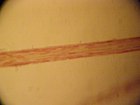Note: This is a project under development. The articles on this wiki are just being initiated and broadly incomplete. You can Help creating new pages.
Codonopsis pilosula - Dangshen Bellflower
Codonopsis is a genus of Flowering plant in the family Campanulaceae. As currently recognized, Codonopsis includes two other groups sometimes separated as distinct genera, i.e. Campanumoea and Leptocodon. The enlarged genus Codonopsis is widespread across eastern, southern, central, and southeastern Asia, including China, Japan, the Russian Far East, Kazakhstan, the Indian Subcontinent, Iran, Indochina, Indonesia, etc.
Uses
indigestion, loss of appetite, stomach pain, nausea, vomiting, Peptic ulcers, Codonopsis remedies, Diarrhea.
Parts Used
Chemical Composition
Codonopilates A-C, a group of triterpenyl esters isolated from a CHCl3 fraction, 24-methylenecycloartanyl linolate and 24-methylenecycloartan-3-ol, structurally similar to Codonopilates[1]
Common names
| Language | Common name |
|---|---|
| Kannada | |
| Hindi | |
| Malayalam | |
| Tamil | |
| Telugu | |
| Marathi | NA |
| Gujarathi | NA |
| Punjabi | NA |
| Kashmiri | NA |
| Sanskrit | |
| English | Dangshen Bellflower, Poor man's ginseng |
Habit
Identification
Leaf
| Kind | Shape | Feature |
|---|---|---|
| Simple | alternate | Leaf-stalks are 0.5-2.5 cm long, sparsely bristly-hairy. Leaves are gray-green below, green above, ovate or narrowly ovate, 1-7.3 x 0.8-5 cm |
Flower
| Type | Size | Color and composition | Stamen | More information |
|---|---|---|---|---|
| Unisexual | 1.8-2.3 x 1.8-2.5 cm | yellow or light purple | 5-20 | Flowers Season is June - August |
Fruit
| Type | Size | Mass | Appearance | Seeds | More information |
|---|---|---|---|---|---|
| bell-shaped | 7–10 mm (0.28–0.4 in.) long pome | clearly grooved lengthwise, Lowest hooked hairs aligned towards crown | With hooked hairs | {{{6}}} |
Other features
List of Ayurvedic medicine in which the herb is used
- Vishatinduka Taila as root juice extract
Where to get the saplings
Mode of Propagation
How to plant/cultivate
Codonopsis pilosula originates from China and Korea, where it has always grown wildly, but now it is extensively cultivated for medicinal properties.[3]
Commonly seen growing in areas
Photo Gallery
References
External Links
- Pages that are stubs
- Ayurvedic Herbs known to be helpful to treat indigestion
- Ayurvedic Herbs known to be helpful to treat loss of appetite
- Ayurvedic Herbs known to be helpful to treat stomach pain
- Ayurvedic Herbs known to be helpful to treat nausea
- Ayurvedic Herbs known to be helpful to treat vomiting
- Ayurvedic Herbs known to be helpful to treat Peptic ulcers
- Ayurvedic Herbs known to be helpful to treat Codonopsis remedies
- Ayurvedic Herbs known to be helpful to treat Diarrhea
- Herbs with Roots used in medicine
- Herbs with common name in English
- Habit - Herb
- Index of Plants which can be propagated by Seeds
- Index of Plants which can be propagated by Cuttings
- Herbs that are commonly seen in the region of Woodland Garden Sunny Edge
- Herbs that are commonly seen in the region of Dappled Shade
- Herbs that are commonly seen in the region of Shady Edge
- Herbs







